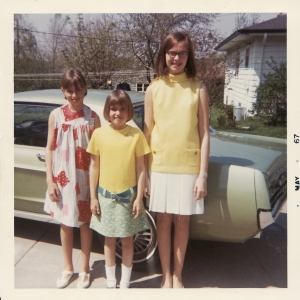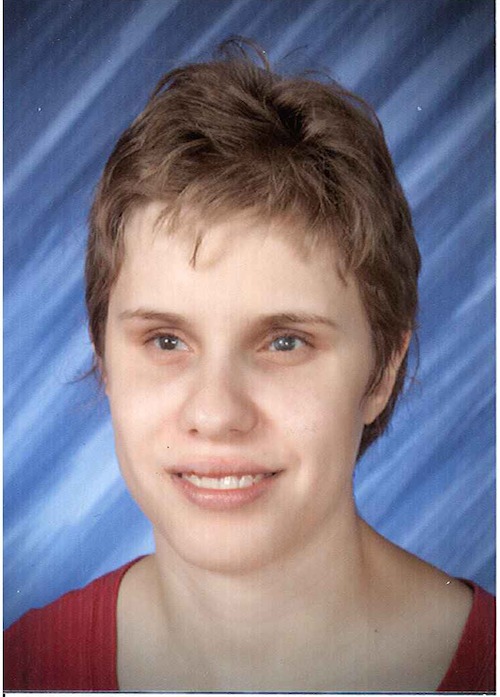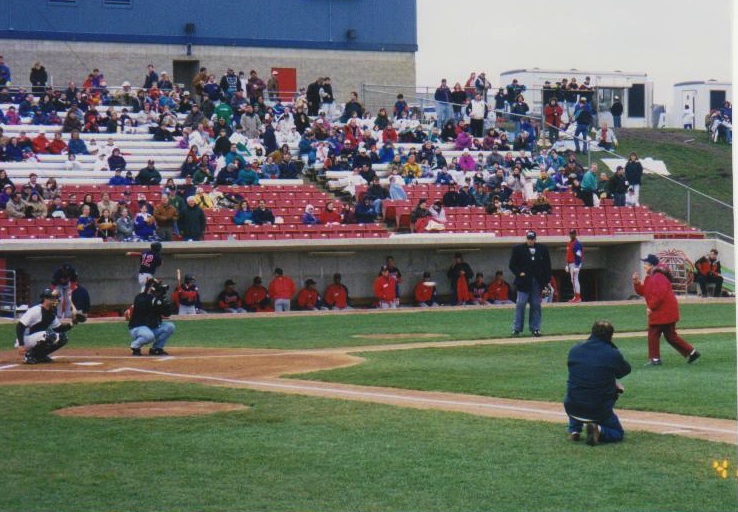This might explain why my tips weren't so great
February 6, 2013 • 15 Comments • Posted in blindness, Blogroll, Braille, Flo, technology for people who are blind, Uncategorized, visiting librariesI was a very happy six-year-old any time Flo (that’s my mom) dropped me off at the library so she could run errands, and I was an absolutely elated six-year-old the night she dropped me off at the library, headed to the grocery store, drove straight home, pulled the car into the garage, put the groceries away and sat down with her feet up for a while before noticing how quiet it was.
Flo found me outside the library’s locked doors, smiling, sitting next to my pile of books, flipping through pages, anticipating which new book I’d start first. I was in seventh heaven.

That’s me in the middle, flanked by my sisters Bev and Marilee – they must not have gone to the library with me that night!
I met my dear friend Colleen ten years later. We were both waitressing at Marshall Field’s, saving our money for college. She says she knew I was cool right away when she saw me hide my paperback copy of Great Expectations in a pile of folded cloth napkins so I could sneak in a page or two between customers. Goes without saying. Colleen was a bookworm, too.
I lost my sight ten years later, in 1985. No iPhones, no digital recorders, no mp3 players, no laptop computers. Unabridged books on tape were hard to come by back then, and Braille was difficult to learn. How would I survive without being able to read? The National Library Service for the Blind and Physically Handicapped (NLS) came to my rescue. NLS mailed books and magazines on audio cassettes directly to our house at no cost, and now their books are available online for download.
The Daily Post reports that ebook sales recently trumped those of hardcover books. “The ease of digital books can’t be beat,” the post says. “How else can you hold hundreds of books in your hand so easily?” The post went on to admit that the sensation of reading a book by machine is undeniably different than cracking open a brand new book in print, and I have to agree. I’m grateful for technology for allowing me to keep up with my fellow bookworms, but if you want to know the truth, I do still miss cozying up in the corner of the couch to read words. In print. On paper. In a good, old-fashioned…book.



